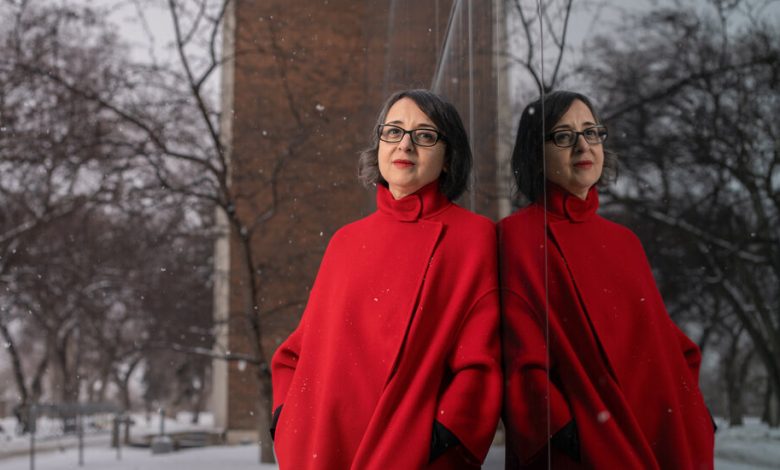A Book Found in a Cairo Market Launched a 30-Year Quest: Who Was the Writer?

Crouching over piles of books in a market stall in Cairo one day in the fall of 1993, Iman Mersal stumbled upon a slim volume with a gray cover and a catchy title: “Love and Silence.”
Mersal, who was then a graduate student, thought the author might be related to a novelist and prominent anticolonial figure, Latifa al-Zayyat. She bought the book for one Egyptian pound.
What Mersal found instead was an intimate, introspective novel, an essential but largely forgotten work by a female writer in early contemporary Egypt. The voice, Mersal later wrote, was “modern, strange, limpid and beyond categorization.”
The book moved her, she said, and set her on a nearly 30-year journey to learn what she could about the author, a young Egyptian woman called Enayat al-Zayyat who died by suicide in 1963 after overdosing on pills. All she left was a note by her bed for her son, Abbas, that read: “I do love you, it’s just that life is unbearable. Forgive me.” After her death, her writing fell into oblivion.
In “Traces of Enayat,” translated by Robin Moger and to be published on April 2 in the United States by Transit Books, Mersal revives the story of the late writer. The Arabic version, published in 2019, won the Sheikh Zayed Book Award two years later and was a regional success. A mix of literary genres, the book is a subtle and universal exploration of identity.
